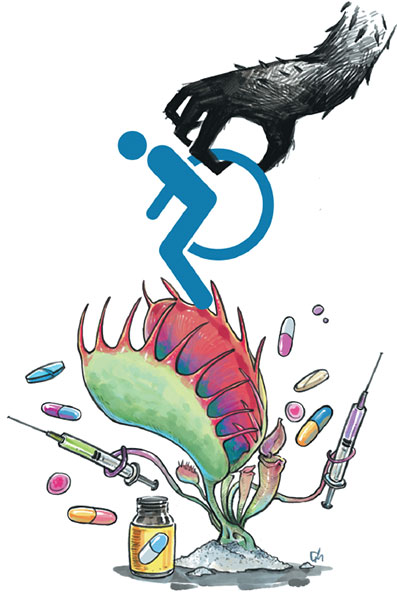
Authorities are cracking down on those who use the most vulnerable people in society to transport illegal substances.
Police have opened a new front in the war on drugs by targeting traffickers who recruit the disabled and other vulnerable people as couriers, or "mules".
Drug gangs target these groups-people with disabilities or chronic illnesses, plus pregnant or lactating women-because Chinese law contains a number of clauses that allow them to avoid prison. That, plus the offer of "easy money", is often enough for those from the poorest sections of society to run the risks associated with the trade.
Last year, more than 5,300 vulnerable people were detained while transporting narcotics, according to the latest annual report on the country's drug situation.
Of those, 782 were foreign nationals, and a large number were from Myanmar, according to the report, released last month by the Office of National Narcotics Control Commission, China's top anti-drug authority.
In August, a pregnant 18-year-old woman from Myanmar was caught with nearly 3 kilograms of methamphetamine stashed in 80 mooncakes, a traditional Chinese delicacy.
The mule, who had been hired to carry the narcotics from Myanmar to Kunming, capital of Yunnan province, was caught as she was about to deliver the mooncakes to the buyer. In her confession, she said she was due to receive 5,000 yuan ($730) when the deal was closed.
In a similar case, a 16-year-old Myanmarese girl was caught at a bus station in Kunming with about 2.8 kg of meth concealed in two boxes of mooncakes.
Under China's Criminal Procedure Law, the disabled, people with chronic illnesses or acute infectious diseases, and pregnant or lactating women, can file for bail prior to conviction, and later apply for medical parole that will allow them to serve their sentences outside prison.
Even if they are convicted and sentenced, they can avoid jail if they are physically unfit for imprisonment, according to Wei Jie, a criminal law specialist with the Jieqiang Law Firm in Beijing.


















































